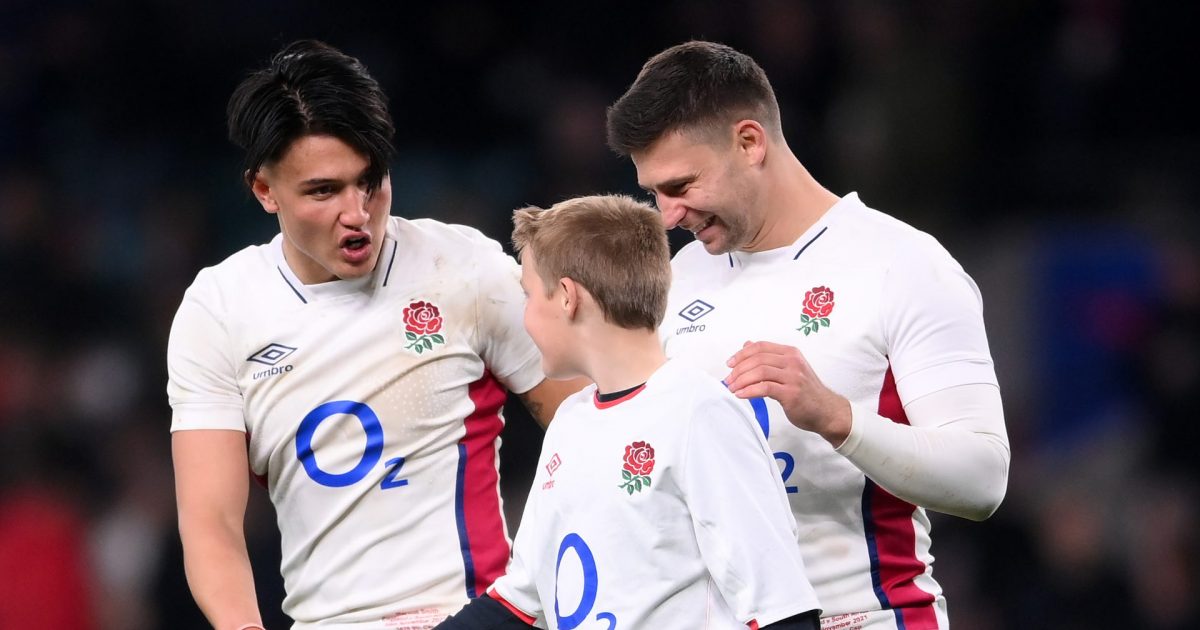What Smith as the England 10 means for Youngs compared to Ford

Centurion Test scrum-half Ben Youngs has explained he doesn’t really have to change his game when paired together with international level rookie Marcus Smith compared to his long-established England partnership with George Ford. The Youngs/Ford axis goes way back to the Stuart Lancaster era, predating the current regime of Eddie Jones who took over for the 2016 Six Nations.
Youngs/Ford continued to be Jones’ preferred halfback partnership, the duo starting the 2019 World Cup final together, but the outlook is now very different heading into the 2022 Six Nations which starts next Saturday away to Scotland.
A veteran of 110 England appearances, Youngs’ last 15 starts since he was benched versus Scotland in February 2020 have seen him paired with four different No10s. He was picked to start with Ford on eight occasions and ran out on another four occasions with Owen Farrell as the chosen out-half. However, the landscape changed in November, Smith starting at No10 against the Wallabies and the Springboks after George Furbank had the jersey versus Tonga.
That Autumn Nations Series took place amid the backdrop of Ford being dropped from the squad by Jones and only after Farrell suffered an ankle injury that required an operation last week was Youngs’ Leicester teammate called back into the England fold.
This return of Ford to the setup will add a layer of intrigue ahead of next Thursday’s announcement of the starting England team to take on the Scots at Murrayfield, but what has it been like in the meantime for Youngs adjusting to the presence of Smith having had Ford and Farrell as his regular Test level half-back partners for numerous years?
“I wouldn’t say my game changes when I play with Marcus,” reckoned Youngs, who made a Test debut in March 2010 in Edinburgh at a time when Danny Care was the favoured No9 with Jonny Wilkinson at No10 under Martin Johnson. “If anything him [Smith], George and Owen are all very established fly-halves. For me, it’s just picking up on that.
“With George, I play with him week in week out (at Leicester) so you get that understanding without him having to tell me what he wants, I just know what he wants. With Marcus, we have just got to do a lot more work away from the field just making sure I am clear on what he wants.
“I want to be able to service him, as Harry (Randall) and Raffi (Quirke) do. I want to be able to give him the ball and the service that he wants, so a lot of the work with him is probably done away from the field as such.
“Then when we hit the field we have hopefully ironed it out over a laptop looking at footage and then we hit with it. But yeah, I don’t feel like I need to change too much. It is just more of a better understanding of exactly what he wants.”
















